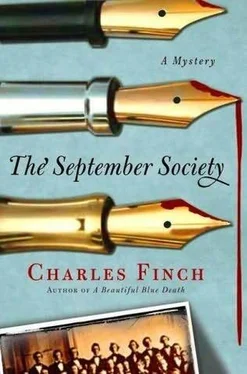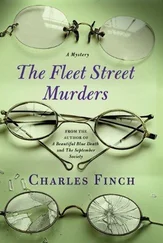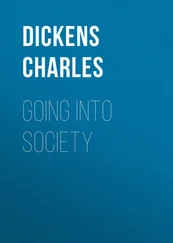Charles Finch - The September Society
Здесь есть возможность читать онлайн «Charles Finch - The September Society» весь текст электронной книги совершенно бесплатно (целиком полную версию без сокращений). В некоторых случаях можно слушать аудио, скачать через торрент в формате fb2 и присутствует краткое содержание. Жанр: Исторический детектив, на английском языке. Описание произведения, (предисловие) а так же отзывы посетителей доступны на портале библиотеки ЛибКат.
- Название:The September Society
- Автор:
- Жанр:
- Год:неизвестен
- ISBN:нет данных
- Рейтинг книги:4 / 5. Голосов: 1
-
Избранное:Добавить в избранное
- Отзывы:
-
Ваша оценка:
- 80
- 1
- 2
- 3
- 4
- 5
The September Society: краткое содержание, описание и аннотация
Предлагаем к чтению аннотацию, описание, краткое содержание или предисловие (зависит от того, что написал сам автор книги «The September Society»). Если вы не нашли необходимую информацию о книге — напишите в комментариях, мы постараемся отыскать её.
The September Society — читать онлайн бесплатно полную книгу (весь текст) целиком
Ниже представлен текст книги, разбитый по страницам. Система сохранения места последней прочитанной страницы, позволяет с удобством читать онлайн бесплатно книгу «The September Society», без необходимости каждый раз заново искать на чём Вы остановились. Поставьте закладку, и сможете в любой момент перейти на страницу, на которой закончили чтение.
Интервал:
Закладка:
“With some cause, at any rate.”
“Indeed. Well, he took the money he made and with about half of it bought a nice pile of a place near his childhood home, filled it with paintings and furniture and flatware, installed his parents there as resident caretakers, and promptly left. He invested half of the remaining money, and then with the quarter of the patent payment he had left he moved to Fulham, and he’s vowed to stay there drinking and gambling until it runs out. Then, he says, he’ll move back to the country and marry, perhaps become a local magistrate.”
“Good Lord, he sounds fascinating! How on earth did you come across him?”
“This is where your interest may lie, in fact.”
“Rest assured, you already have my interest.”
“We received a report of repeated gunshots in the basement of his house. A bobby went out to look, and it turned out that he had a firing range underneath his house. He was terrifying his maid by shooting all night. Drunk, oftentimes. It was above the bobby’s head, and I went and had a look at him. Well, we fell into a long conversation, and I really found him most interesting.”
“I should say so.”
“He believes in something called ballistics, you see, Lenox.”
“What’s that?”
“Do you hunt?”
“Certainly.”
“Then you’ll know that all rifles have helical grooves running down their barrels, which give the bullet its peculiar spin coming out of the muzzle. Matte believes that it’s possible to identify a gun simply by studying a bullet that has been fired from it. I tested him informally with a few bullets we had used in a recent case, and he was dead on.”
Lenox was puzzling this over in his mind. “It just… just seems possible,” he said slowly. “Perhaps.”
“And yet nobody at the Yard would listen to a word I said!”
“That can scarcely surprise you.”
“Can’t it?” Jenkins sighed. “I love my work, Lenox, but I sometimes fear my colleagues are living in the past. This revolution of industrial technology we’re undergoing will change police work forever, mark my words. Yet I can’t persuade anybody even to listen to a man like Matte, who may very well have made a major breakthrough in criminology! Maddening-simply maddening. I think of leaving now and then, you know.”
In a gentle, commiserating tone, Lenox replied, “That’s precisely why you must stay, Jenkins. It’s your work to bring your colleagues into the present.”
“Well, either way, here we are,” said Jenkins. They had pulled up in front of a small and eccentrically designed house. “I’ve told him we’re coming. He’ll be downstairs in his basement. I’ve made him soundproof the walls, anyway, or his neighbors would have gone mad.”
Matte was a tall, good-looking chap with blond hair and a straight posture. He was also almost certainly drunk.
“How do you do, how do you do?” he asked jovially. “Has Jenkins told you all about my discoveries? If only the asses he works with would listen, I could save them all hours upon hours of useless work. But will they? No! Of course not! The greatest invention of our time, under their noses, and they won’t even put down their newspapers. Asses,” he said again, shaking his head as if they were more to be pitied than censured for it.
The basement was a fascinating place; otherwise normal, at its center was a table full of various guns. One wall was entirely covered with hideous oil portraits, all of which were riddled with bullet holes.
“Dreadful, aren’t they?” said Matte when he saw Lenox staring at them. “I buy ’em from a lad who thinks he has real talent. I feel sorry for him. He paints pictures of all the prostitutes and tries to sell them down in the West End. Nothing doing, though.”
“I’ve shown Laurence the bullet that lodged in the wall after it hit Annie, Lenox. Laurence, have you taken a look at it?”
“Oh, that, yes.” He retrieved it from the table full of guns. “I’m afraid I can’t be terribly specific-I can only tell you that it’s from an old discontinued line of service revolvers. It’s been to the East, and before it shot this maid Jenkins mentioned, it hadn’t been used for a decade. That’s why it accidentally discharged, old age.”
“What!” said Lenox, for once entirely shocked. “How on earth can you say that?”
“Easily enough. Its type is obvious from the grooves it left on the bullet. The firing mechanism was rusty and slightly off center, which can come with long disuse, and the barrel was coated with fine clay, such as you find in the East. A disgusting way to take care of a gun, mind you.”
“Are you certain?” asked Lenox. “The East?”
Jenkins was clearly thinking the same thing. “The September Society.”
“Oh, certain enough,” said Matte distractedly. He had taken up a gun and was cleaning it with a practiced, almost gifted hand. “The worst part of it all is that I didn’t even invent internal ballistics! Some chap thought it up about thirty years ago, in 1835. But I’ve certainly perfected it. Tell everyone you know, won’t you? It’s important.”
Shortly afterward they left Matte in his basement with their thanks. It was late, and the carnival of iniquity was visible in the low lights by the river where the saloons had just opened.
“Interesting fellow, isn’t he?” said Jenkins.
“Reliable, though, you think?”
“As I say, I tested him. He seems to be almost perfectly accurate to me. I’ve come to trust him implicitly despite his oddness.”
As they rode back toward Piccadilly and the West End, the two men had a long discussion about the bullet and the September Society, agreeing at the end of it to keep in close contact as they decided on a course of action.
“We have a real interest in this case, as I mentioned,” Jenkins said when they had reached Hampden Lane.
Lenox knew that Jenkins was referring to himself, rather than the Yard, and felt touched. An ally, that was what the young inspector was proving to be. “I’ll write you tomorrow morning,” he promised and said good-bye.
As he climbed the stoop of his house Lenox thought of a long night’s rest. But in the front hallway he found Mary in a state of intense anxiety, pacing and waiting for him.
“Sir, sir!” she said when he came in. “There’s a man here!”
“Who is he?”
“I daren’t say!”
“Where is he?”
“In your study, sir, eating all the food in the house! He insisted, sir!”
“Take a deep breath, Mary. Has Graham not returned?”
“No!”
“Well, let’s see who it is.”
Lenox strode into his library and found a young man, covered in dirt, hair shorn close to his head, clothes disheveled, and eating, as Mary had said, from a massive plate of food. “I’m Charles Lenox. May I help you?” the detective asked.
The young man rose slowly and swallowed his mouthful.
“Perhaps,” he said, in a surprisingly educated voice. “I’m Bill Dabney.”
CHAPTER FORTY-THREE
Now,” said Lenox. “May I ask you a few more detailed questions?”
“Of course,” said Dabney. His voice had been polished by Oxford; it lacked the deep melodious quality of the Midlands his father’s voice had, but he was proving just as affable and thoughtful.
Lenox had instantly asked three questions when the two had first faced each other in the library. They were: Do you know who killed George Payson? Does anybody else know where you are? And: What happened? To these Dabney had replied: no, no, and that he wasn’t quite sure. Then Lenox, seeing the pathetic state of the lad’s clothing and the hunted, fearful look in his eyes, had put off his curiosity and asked Mary to draw Dabney a bath and find him some new clothes.
Читать дальшеИнтервал:
Закладка:
Похожие книги на «The September Society»
Представляем Вашему вниманию похожие книги на «The September Society» списком для выбора. Мы отобрали схожую по названию и смыслу литературу в надежде предоставить читателям больше вариантов отыскать новые, интересные, ещё непрочитанные произведения.
Обсуждение, отзывы о книге «The September Society» и просто собственные мнения читателей. Оставьте ваши комментарии, напишите, что Вы думаете о произведении, его смысле или главных героях. Укажите что конкретно понравилось, а что нет, и почему Вы так считаете.












